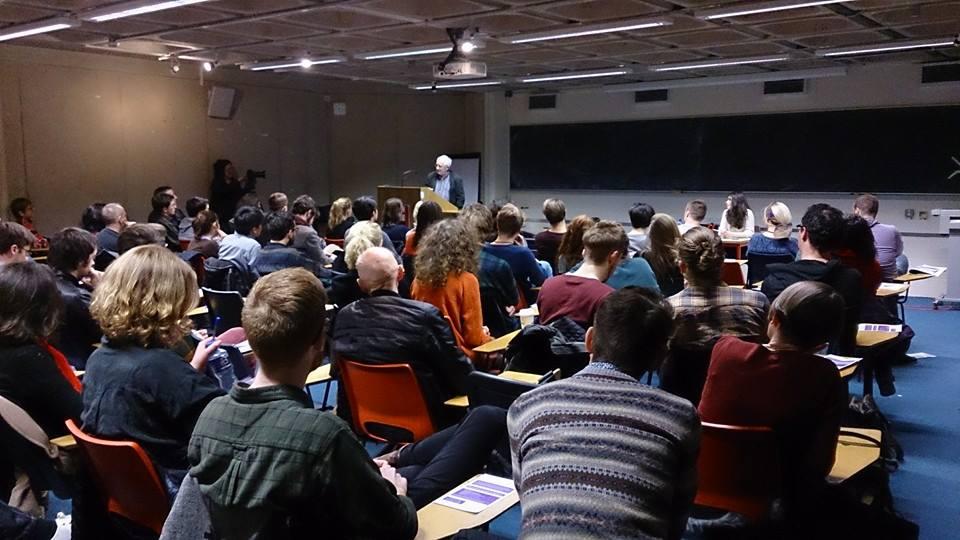“Too much belief is neither necessary nor desirable for our social conscience,” prominent literary theorist Professor Terry Eagleton said at the Trinity Socialist Student Worker Party’s event, The Death of God and Terror on War, last Thursday.
Marxism’s focus on fulfilment through culture, rather than capitalist or financial endeavours, would, he argued, provide society with a clear narrative and ideology. Our current postmodernist society emerged during the 20th century as a rejection of the “right and wrong” binary. This, he said, created a “fear of conviction” and has contributed to the burgeoning fundamentalism of “faithless capitalist behaviour” in the west and religious extremism in the east.
Eagleton began with Nietzche’s infamous “God is dead” quotation, which allowed the individual to subscribe to their own religious, political and cultural ideologies (if any) which were previously used by states as oppressive tools. The middle classes or bourgeoisie began to focus on business in favour of the metaphysical, and capitalism thus became the new foundation for social cohesion.
However, God was still believed in with a “cognitive dissidence” such as that of Othello’s who simultaneously believed that Desdemona was both innocent and guilty. Although there was a pragmatic belief in the egalitarian market place, there was still a religious ideology underpinned to this “faithless behaviour”.
Eagleton highlighted the similarities between this and the USA’s materialistic society where the most successful politicians are those who have a strong family, business and army background as well as a prevalent Christian belief. Yet the two oppose each other fundamentally. He argued that, as time has progressed, we needed a true believer to fight for something radical. Capitalism gradually has provided us with a more “feasible” metaphysical narrative through measuring our success, he said.
Nonetheless, Eagleton argued, the West was too arrogant after defeating the narrative of their Cold War enemy in the late 90s, creating an “over pragmatism” towards other nations and their ideologies. But with the closing of this chapter came the opening of a “new metaphysical grand narrative” introduced after 9/11 with the emergence of fundamentalist Islamic terrorists. Military intervention in these areas by, as Eagleton described, “the liberal agnostic west” is the cause of “this illiberal theocratic east”. For instance, the killing of half a million Indonesians in the 90s, gives room for “Islamic extremism’s manoeuvre”.
But Marxist philosophy provides a “realist” approach to our crises by providing a metaphysical underpinning to our conviction-less yet extremist societies, he said. Eagleton concluded that this “realism” would cultivate support for resistance against these “monolithically fractured ideologies” of the suburban, golf-playing God and a rival barbaric deity. The focus of western and eastern religions on “life after death” has created insecurities among their followers, which has spawned fundamentalism, but, through Marxism, we can have faith in humans through culture rather than an intangible hope in the unknown, he said.
Photo: Trinity Socialist Student Worker Party







